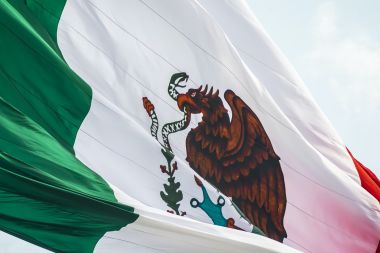
BY : Duncan Williams Christian Today
Despite their being hailed by some as a victory for indigenous rights, a leading international charity has warned that new reforms to Mexican law that will allow indigenous communities to enforce local customs and traditions instead risk escalating the persecution of Christians.
Open Doors, which works to support believers facing persecution around the globe, has warned that the legislation passed in September could see Christians who refuse to participate in traditional rituals and festivals – some involving practices such as animal sacrifice – face legal repercussions.
“In many indigenous communities, religious customs are inseparable from community life,” Liz Cortés, a partner of Open Doors working in Mexico, said. “Christians who choose not to participate in these rituals are often seen as outsiders, disrupting the social order.
“This new reform essentially legitimises this persecution by empowering local authorities to enforce these traditions as law, leaving Christians vulnerable to harassment and violence.”
Religious practices that combine pre-Hispanic beliefs with Catholic traditions are often considered communal obligations in indigenous communities across Mexico, and Christians who refuse to take part, or contribute to community funds for them, regularly face hostility. Even before the new legislation came into effect, Christians often faced fines, imprisonment, and expulsion.
“Christians are often cut off from essential services such as water and electricity,” Cortés said. “Their children are denied education, and they are barred from accessing health services.”
“In some cases, pastors are not even allowed to enter these communities to offer spiritual support.”
This social ostracism can also see the children of Christians face bullying at school, and even instructions to teachers from local authorities to ignore them in class.
Advocates fear that the new reforms will not only embolden the persecution of Christians, but that the increased autonomy it grants indigenous communities in enforcing their law free from external oversight will undermine the ability of Christians to appeal to the nation’s legal protections of religious expression and belief.
“By recognising indigenous customs as public law, the government has essentially created a ‘fourth level’ of governance, making it difficult for Christian minorities to defend their rights under national law,” Jorge Jiménez, a researcher for Open Doors in Mexico, said.
“Indigenous courts, which may be biased against Christians, could handle these cases, complicating legal recourse.”
The new laws will also make it more difficult for groups like Open Doors to advocate on behalf of local Christians. In the past, rights groups have relied on the Law on Religious Associations and Public Worship which upholds freedom of religion in indigenous areas.
However, they worry that its protections may be weakened in the name of respecting the value and importance of indigenous traditions, and are calling on the Mexican government to ensure that cultural preservation does not come at the expense of fundamental human rights, including freedom of religion.
“We respect the traditions of these communities,” Cortés said, “but we cannot stand by while Christians are forced to renounce their faith or face imprisonment, fines, and social exclusion.
“It is crucial that the Mexican government safeguards religious freedom alongside the autonomy of indigenous peoples.”
Photo: Unsplash/Jorge Aguilar



















